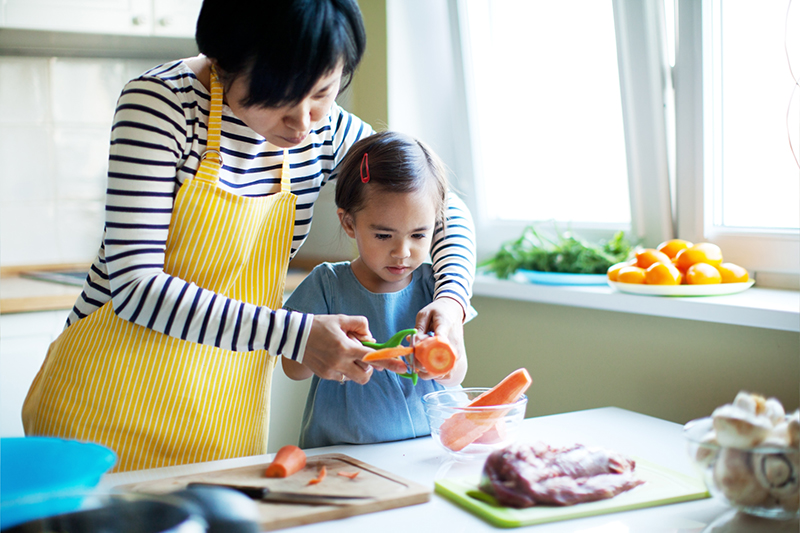Families For Life | Thinking: School-Age Children

School stimulates new areas of thinking for your child, and there’s a lot you can do to encourage cognitive development. Play is still a big part of how your child develops learning, thinking and problem-solving skills at this age.
About play and cognitive development for school-age children
School-age children can absorb new information quickly and are excited by learning.
Although your child is learning in more formal ways now, play is still one of the main ways that school-age children develop skills to think, understand, remember, imagine and predict.
Playing with your child can keep you close and help to strengthen your relationship. This is important as your child goes through the ups and downs that can sometimes come with starting school, coping with new routines and making new friends.
And when you play with your child, you also help your child practise some of the thinking skills she’s learning at school. For example, if you and your child are playing a board game, you can practise numeracy skills by adding up the points each of you score.
Thinking ability and self-esteem are closely linked at this age. Worries, big and small, can easily distract your child from thinking clearly and learning. Fear of failure or being made fun of can also become barriers. Taking the time to talk with your child can help your child overcome these worries.
What to expect: cognitive development in school-age children
With time, practice and experience, your school-age child will probably:
be keen to collect items like cards or shells
be able to read on his own from about seven years old
be able to tell the time from seven or eight years
know left from right
be fascinated by science experiments
be able to understand you if you try to reason or negotiate with him from five years
want to follow the rules and play fairly in games
think before acting and ask permission before trying something new – most of the time!
Starting school gives your child lots to think about. There are new rules, routines and more formal learning styles that are different from those at home. This can be tiring and confusing at first. Your child might need time and lots of love and support to adjust.
Many schools have programmes to help children prepare for this transition. You can also talk with your child’s teacher if you have concerns or want ideas for supporting your child through this change in her life.
To think and learn well, your child needs to eat well and get plenty of sleep. This gives your child the energy to play and learn at school.
Play ideas for cognitive development in school-age children
Play is still important for cognitive development in children at school. When children play, they’re busy problem-solving, creating, experimenting, thinking and learning.
You can help stimulate your child’s excitement about learning and extend his thinking by finding out your child’s interests. For example, if your child is fascinated by sea urchins, you could visit the library together and find books on the subject, or visit the beach to search for sea urchins. Encourage your child to share what he’s learning with you.
Also, learning by doing is best at this age. Your child will learn faster if you step back and provide encouragement and support from the sidelines. Avoid jumping in to provide solutions. Your child will generally let you know if she needs help, so follow her lead.
To encourage your child’s thinking through play, you can:
provide puzzles and encourage your child to put most of it together himself
play games together, like board games, simple crosswords, word-finders and card games – for example, ‘Happy Family’, ‘Snap’ or ‘I Spy’ (something beginning with a letter of the alphabet is good)
read books, tell jokes and riddles together, invent new words or think of rhyming words.
introduce your child to basic magic tricks
play building and construction games
cook together and encourage your child to help you measure and weigh the ingredients.
A healthy family lifestyle includes limits on screen time. Screen time includes time spent watching television and playing games on computers, mobile phones and tablets.
Children develop at different rates. They don’t all do the same things at the same time and in the same way. But there are general patterns that most children more or less follow. If your child seems to be having trouble learning at school or isn’t working at a similar level to his peers, it might be a good idea to talk with your child health professional or your child’s teacher.
© raisingchildren.net.au, translated and adapted with permission
Explore more

DID YOU KNOW?
Playing with pasta pieces, especially macaroni, can be an excellent way to boost your child's acquisition of fine motor skills!
READ MORE